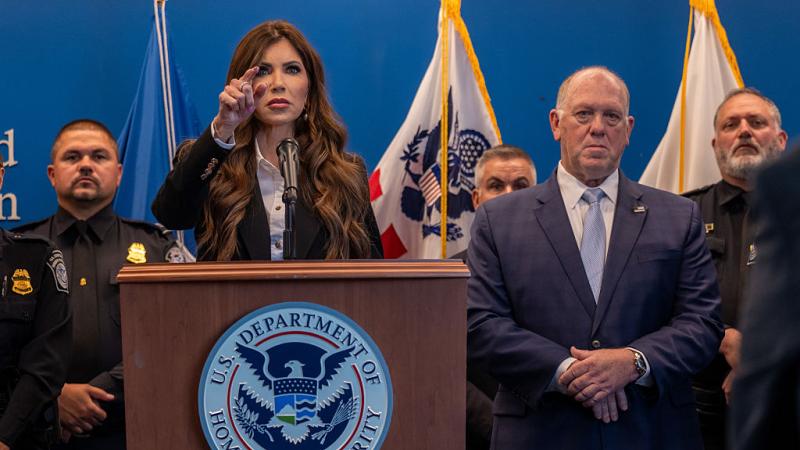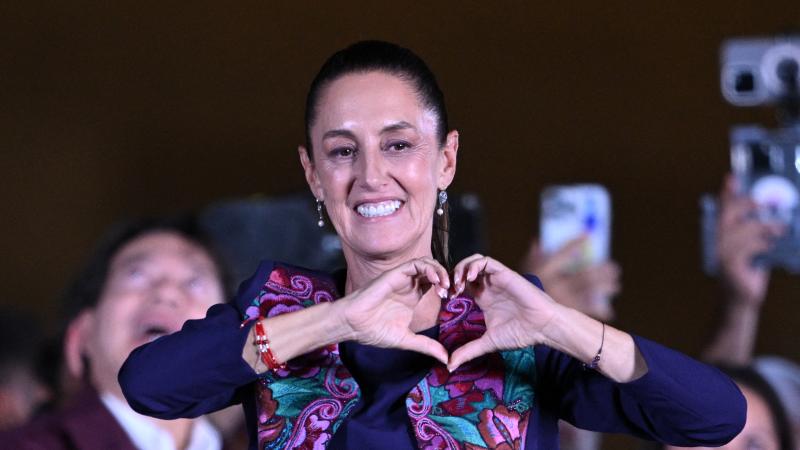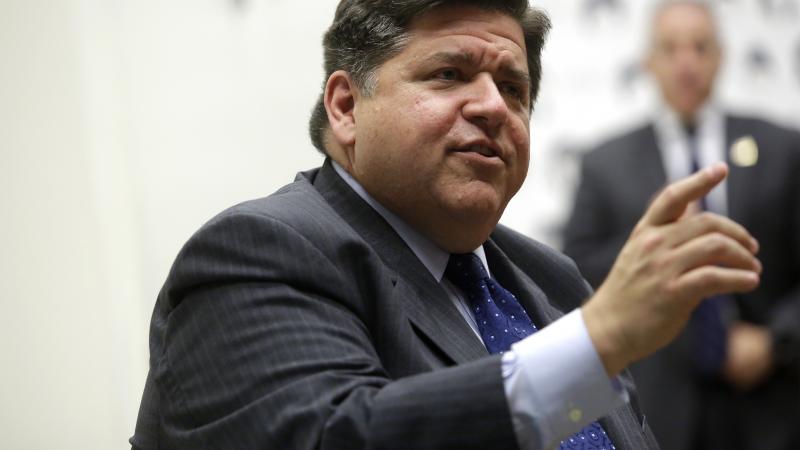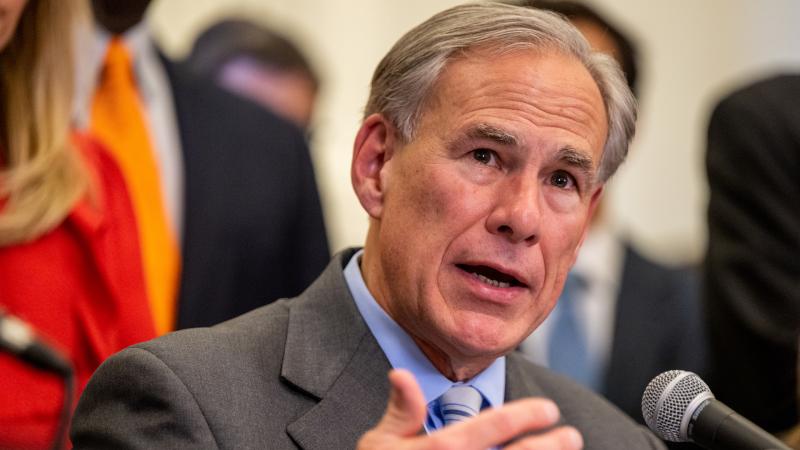Obamacare mandate for high-risk sex drugs protects unelected bureaucrats everywhere, SCOTUS hears
Pro-government briefs focus on the merits of the policy rather than the constitutionality of the law. "Nothing bars the President from nominating Task Force members for senatorial confirmation," Republican AGs note.
A legal fight over free insurance coverage for HIV-prevention drugs and making a self-insured Christian company "complicit in facilitating homosexual behavior" reaches far beyond its Obamacare context, but ordinary Americans wouldn't know that by reading pro-government friend-of-the-court briefs submitted to the Supreme Court.
Affordable Care Act provisions that force insurers to charge beneficiaries nothing for preventive services on a list determined by a task force – neither appointed by nor answerable to the president – are symbolic of unaccountable bureaucrats throughout the federal government making unconstitutionally unreviewable decisions, newly filed briefs argue.
The high court hears oral argument later this month on whether U.S. Preventive Services Task Force members are "principal" officers under the Appointments Clause and whether their decision-making authority can be legally preserved by judicially empowering the secretary of Health and Human Services to "direct and supervise" their coverage decisions.
The 5th U.S. Circuit Court of Appeals rejected both the constitutionality of the task force, upholding a district court decision, and the severability of a separate statute that "unduly insulate[d]" the task force from the HHS secretary's supervision as a principal officer.
That's because Congress didn't give that person –currently, Robert F. Kennedy Jr. – "fallback provisions" to review and "possibly" reject task force coverage recommendations.
The justices have an opportunity to unambiguously slam the door shut on all "independent agencies wielding executive power," including task force members "whether principal or inferior officers," the Christian Employers Alliance told the court last week amid a flurry of new briefs. "For executive power, the buck stops with the President."
The group noted it sued the Equal Employment Opportunity Commission for forcing members to cover "gender transitions … use employees’ self-selected pronouns and to allow males in female-only private spaces … facilitate employees’ abortions and to stop speaking their pro-life beliefs." It won summary judgment and a large settlement in one suit last year.
The task force "is an autonomous rulemaking body whose membership violates the Appointments Clause, thus threatening the accountability and transparency mandated by Article II of the Constitution," the libertarian Cato Institute's brief says.
Through binding rules "on private third parties without any principal officer wielding some subsequent power of review," task force members are principal officers, but even if they were inferiors answering to a principal, "their current secretarial mode of appointment was authorized by regulation" and usurps the "constitutionally prescribed role" of Congress, Cato says.
A coalition of 16 Republican attorneys general sarcastically noted the "armada of amici" briefs "amassed" by the federal government to defend the task force, from the Susan G. Komen Breast Cancer Foundation and HIV drug maker Gilead Sciences to 23 Democratic AGs.
"Almost all" of those briefs "advance policy arguments" for the task force – counterintuitively arguing that mandates are necessary to ensure care that saves insurers money – not legal arguments for the constitutionality of its structure, and are thus "irrelevant" for courts, the GOP brief says.
The American College of Gastroenterology brief, for example, says it's agnostic on the "legal questions" but urges the justices to consider the "practical implications" of ruling the task force unconstitutional, citing its "proven track record of saving lives" by mandating no-cost colorectal cancer screening coverage. (Whether that's "proven" is disputed.)
The policy arguments are also "overstated," the Texas-led Republican AGs' brief says. "Nothing bars the President from nominating Task Force members for senatorial confirmation, which could be accomplished via unanimous consent," and if their nominations are "controversial," that's an even better argument for confirmation, it says.
The right-leaning Association of American Physicians and Surgeons challenged the policy as well as legal arguments for the task force in its brief, accusing the pro-government filers of misleading briefs.
"Inexpensive, widely beneficial screening tests" such as blood work for prostate cancer or mammograms for breast cancer aren't at issue, but rather "an expensive new mandate that benefits only those who choose to partake in a high-risk lifestyle," it says – pre-exposure prophylaxis such as Gilead's Truvada for unprotected or HIV-positive sex.
PrEP, as it's known, "does not prevent many other types of sexually transmitted diseases, and has a side effect of worsening the sexually transmitted Hepatitis B" – which already runs higher in homosexual men – and must be taken religiously to be effective, AAPS notes.
Pro-task force briefs were filed between the government's Feb. 18 brief – five days after Kennedy became HHS secretary and thus lead plaintiff in place of his predecessor Xavier Becerra – and the March 19 brief by respondents defending the 5th Circuit ruling.
Braidwood Management, Kelley Orthodontics and individuals who object to being implicated in no-cost drugs and services that violate their religious beliefs, by insuring them or paying premiums that cover them for others, said the government contradicts itself.
Kennedy's brief alternately suggests officers that can be removed at will "automatically fall into the inferior-officer cubbyhole," and then that "inferior-officer status is produced only by the combined effects" of the secretary's power to remove officers at will and to "review" and "deny binding effect" to task force recommendations, the respondents alleged.
"None of this ultimately matters" because the law requires the task force be kept "independent" and immune from "political pressure," meaning Kennedy cannot remove them at will, they said.
The conservative Goldwater Institute's brief said "the whole purpose of the Task Force is to exercise independent judgment," making it "logically contradictory" to claim it's "independent and unsupervised, but also subject to the political process through the Secretary," by reading "checks and balances" into the statutory phrase "to the extent practicable."
The pro-government "arguments are properly addressed to Congress, to persuade it to restructure the PSTF in a constitutional manner," the think tank said. "They cannot, however, justify diverting from the Constitution’s mandates."
SCOTUS doesn't have to deem the task force members principal officers because Congress must vest the appointment of even inferior officers in the president, courts or "Heads of Departments," the Republican AGs' brief says.
"Expansive theories of severability are especially inappropriate here" because it would require disregarding a "clear statement from Congress" about the purpose of the task force – "to do something different than what the Secretary does" – and its placement in "one specialized body … which itself nests within another specialized body," they said.
The government also urges selective severability, as applied to its mandatory-coverage decisions, which violates an "elementary rule of statutory interpretation," that the law means the same thing regardless of application, according to the brief.
The Facts Inside Our Reporter's Notebook
Links
- friend-of-the-court briefs submitted
- U.S. Preventive Services Task Force
- 5th U.S. Circuit Court of Appeals rejected
- district court decision
- "unduly insulate[d]"
- Christian Employers Alliance told the court
- It won summary judgment
- large settlement in one suit
- Cato Institute's brief
- Susan G. Komen Breast Cancer Foundation
- HIV drug maker Gilead Sciences
- 23 Democratic AGs
- GOP brief says
- American College of Gastroenterology brief
- Whether that's "proven" is disputed.
- Association of American Physicians and Surgeons challenged
- pre-exposure prophylaxis
- runs higher in homosexual men
- must be taken religiously to be effective
- government's Feb. 18 brief
- Kennedy became HHS secretary
- March 19 brief by respondents
- Goldwater Institute's brief















